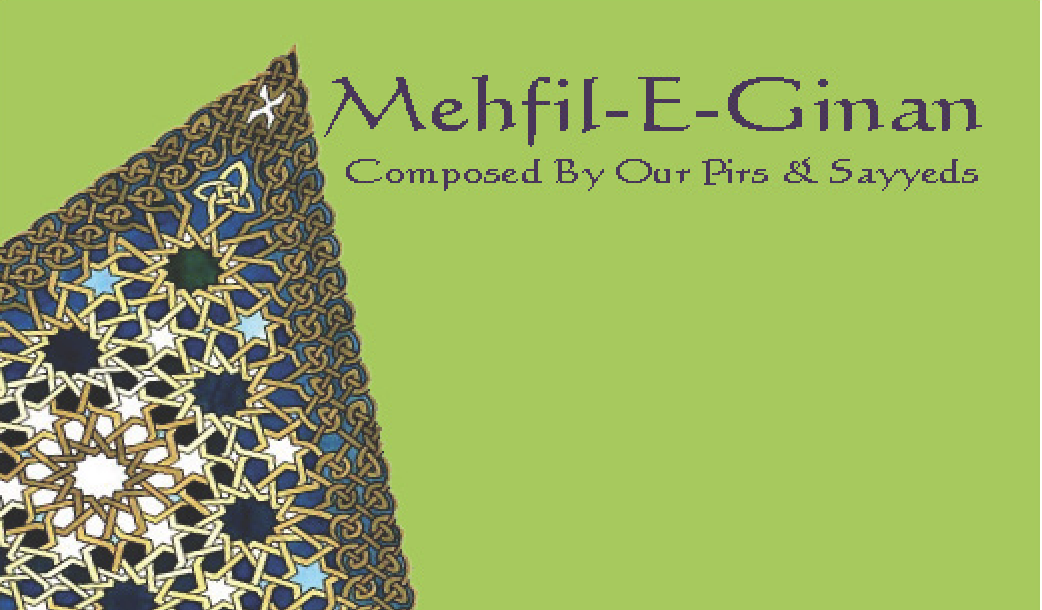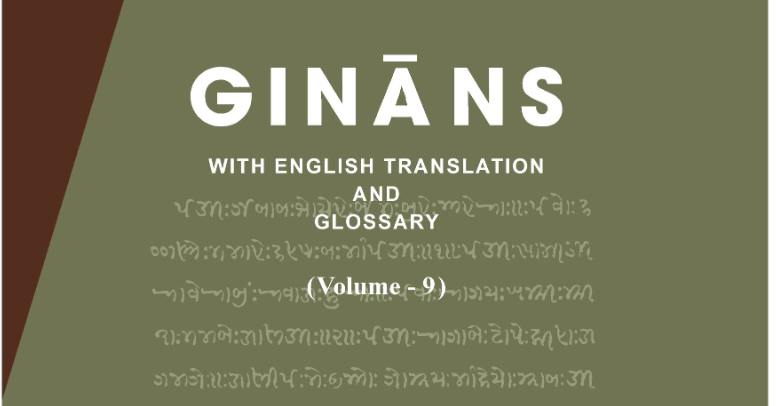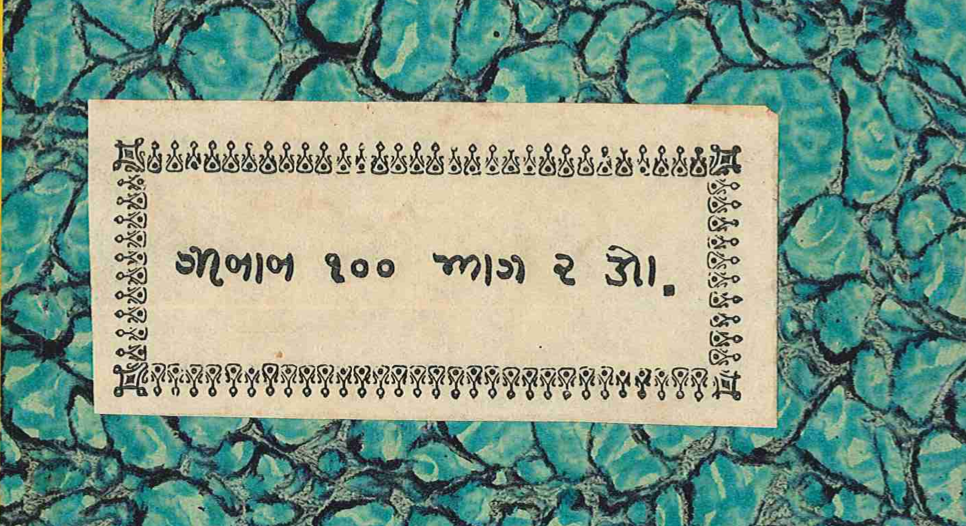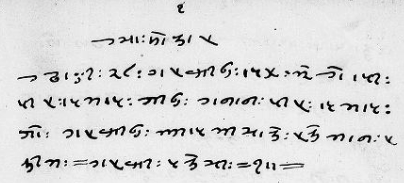The Ginan Library Catalogue lets you locate Ginan books and other items held in various institutional and community collections across the globe.
Quick search for Ginan titles, starting lines, composers, or master identifier.
The following curated digital collections are available at Ginan Central:
The Ginan Library serves as a union catalogue to access ginan materials available in the following institutional and personal collections:
USearch for databases by title or subject. Using USearch
Recognizing that modern scholarship and library practices reflect colonial worldviews, the University of Saskatchewan Library is committed to being an open and inclusive environment that respects and promotes knowledge traditions of diverse communities and worldviews. Ginan Central extends this commitment to the living tradition of Ginans (gnostic knowledge) that continues to be revered by the immigrant Ismaili communities of South Asian origin living in the diaspora in North America and Europe.
Ginan Central began as a research project in 2013 at the University of Saskatchewan Library with the goal of digitally preserving the Ginans of the Ismaili community in ways that reflect and support how community members engage with and interpret the tradition within their contemporary contexts and lived experiences.
Ginan Central works with various community members and institutions to catalogue and categorize Ginan materials in diverse formats (i.e., manuscripts, lithographs, print, sound recordings, moving images, and photographs). In return, these community-contributed materials are digitally curated and made accessible online with the objective of enabling and strengthening the capacity of members of the Ismaili community to preserve and pass on their heritage to the future generations.
From an academic standpoint, the materials available on Ginan Central are best treated as ethnographic field data of the Ismaili community's continued and dynamic engagement with the Ginans over time and geography. In this regard, while Ginan Central is not an initiative intended primarily to engage in research and analysis of this tradition, yet the materials it curates will be useful for scholars undertaking academic studies in a variety of disciplines, including linguistics, philosophy, ethnomusicology, religiohistory, and digital humanities. To this end, Ginan Central also provides community members information about works of modern scholarship on the Ginans (books, chapters, articles), many of which are peer-reviewed.
Ginan Central respects the rights of all copyright holders and the materials on this website appear with the consent of the authors, artists, publishers, or copyright owners. It is possible, however, that individual items or entire collections may need to be removed or de-accessioned for reasons of violation of copyright or copyright dispute, inaccurate metadata or files, storage, or other collection management issues. The digital materials on this website are provided for personal, research, and educational purposes only and are protected by the Canadian and international copyright laws. Commercial use or distribution of any material, therefore, is not permitted without prior permission of the copyright owners. Linking to the website is permitted, provided that you agree not to reproduce, make derivative works of, retransmit, distribute, sell, publish, communicate, broadcast or otherwise make available, or authorize others to do so by downloading, caching, framing or similar means. Ginan Central cannot and does not guarantee accuracy or authenticity of the information made available on its website as outlined here.
The word ginan is a derivative of the Sanskrit term "jnan" which means knowledge, wisdom, and gnosis. In the context of the Ismaili community, the term is used for the individual hymns and poems that were composed by various preacher-saints to propagate Ismaili Islam in the Indian subcontinent. The entire corpus consists of about one thousand distinct ginans that vary considerably in length, language, and composition. The upper case Ginans is also often used to refer to the collective corpus to underscore the scriptural status and authority the heritage enjoys within the Ismaili communities of South Asian origin, including those living in the diaspora in North America and Europe. Today, the global Ismaili community is a culturally diverse community living in over 25 countries around the world with various religio-cultural traditions and heritage, including the Ginans.

Like all religious hymns, the Ginans of the Ismaili Muslim community are meant to be performed and experienced. Ginans leverage the power of poetry and music to bring faith, knowledge, devotion and worship into ecstatic harmony. Having originated in South Asia, Ginans exhibit close affinity to Indic devotional and musical traditions. This digital audio collection captures the rich plurality with which the Ismaili community continues to recite the Ginans across the globe. While the audio quality may vary due to the fidelity and condition of the original recordings, the digital files have been made available with the consent of the artists and producers.

Over the years, local community members and institutions have produced Romanized or English texts to help teach and transmit the Ginans to younger generations, particularly those living in North America and Europe. This collection showcases samples of Romanized texts of the Ginans from around the world to acknowledge the crucial role these texts continue to play in preserving the tradition within the community. Given the independent nature of these efforts, the texts are not scholarly, or peer reviewed nor do they necessarily adhere to the editorial processes of the publishing industry. The texts are provided with the consent of the authors and copyright holders.

The efforts to canonize the Ginans by the Ismaili community leaders can be traced back to the late 19th century. Mukhi Lalji Devraj (1842-1930) of India is credited for publishing the initial canon of Ginans in Khojki as early as 1903. Devraj's Khojki publications were later used by community institutions to publish official texts of the Ginans in Gujarati. This collection houses samples of 'authorized' Ginan texts in Khojki and Gujarati scripts. The items have been digitized and shared with the consent of the owners for personal, research, and educational purposes only.

Academic institutions continue to play a vital role in preserving and making extant manuscripts available for research. Advances in digital technology have made it possible for academic institutions to make their collections digitally accessible to scholars and community members. The purpose of this online collection is to serve as a portal and finding-aid for digitized and publicly available (open access) Ginan manuscripts and other primary source materials from various institutions to promote and facilitate research on Ginans.